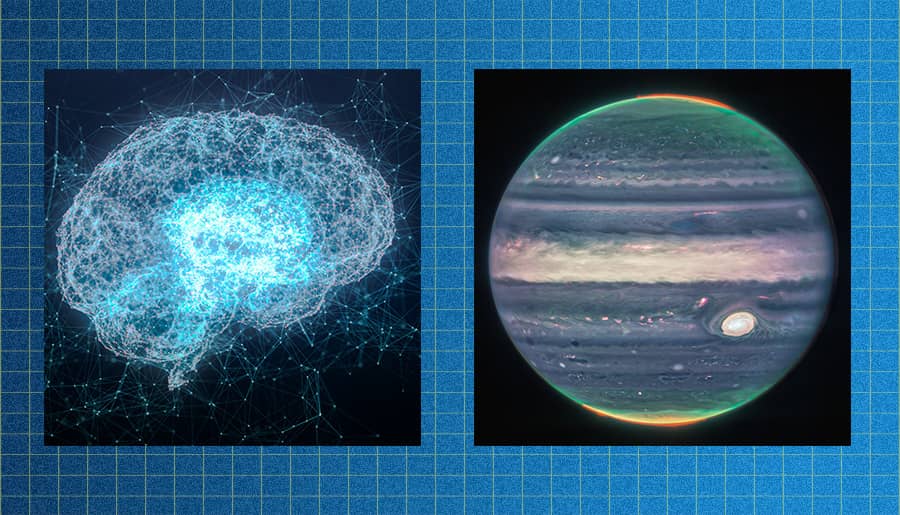This Tuesday, for better and for worse, is a big one. So, let’s not mess around and dive straight into it. Here are the headlines that you need to know about:
BOM’s Weather App Is Causing Confusion
Are you set up in Tassie? Well, then don’t put away your winter blankets just yet. According to the Bureau of Meteorology (BOM), conditions are perfect for your state to get up to 300 metres of snow.
Moreover, this joint isn’t the only one that could get some frigid weather. “The coldest air will move up to New South Wales on Wednesday,” a BOM meteorologist, Miriam Bradbury, told the ABC. They also said that it might snow in the central tablelands and that there could be “flurries about the Northern Tablelands above 1,000 metres.”
However, if you want to find the most clear-cut info about these chilly vibes and if it’ll rain, you might not get them on the BOM’s website. This is because the BOM is updating its phone app to make it more intelligible, and its website hasn’t had the same revamp yet. According to BOM forecaster, Jonathan How, in an interview with the ABC, this ongoing issue won’t be permanent.
Kyiv Has Banned Its Independence Day Celebrations
The Ukrainian capital of Kyiv has a lot to celebrate. After all, its residents have survived a brutal Russian invasion in a war that has raged on for over 180 days. It’s also worth mentioning that many analysts believed that the whole country would fall swiftly and quietly. Yet Kyiv still stands.
But, despite this being the case, Kyiv has banned all public celebrations this week that would acknowledge Ukraine’s no longer under Soviet control. This is because Russia is expected to ramp up its attacks on the city in the next week or so. Reuters has reported that the Ukrainian President, Volodymyr Zelenskyy, believes that “something particularly ugly” will happen before August 31, the anniversary of his country’s independence.
Can Zapping Your Brain Improve Your Memory?
Science is wild, aye. For instance, a study published in Nature recently indicated that putting weak electrical currents through the brains of some older adults can improve their memories for up to a month. “Their results look very promising,” Ines Violante, a neuroscientist at the University of Surrey, told the journal that published said study. “They really took advantage of the cumulative knowledge within the field.”
Now, while more research in this field needs to be done, the findings of this paper are rather impressive. “A critical factor contributing to ageing-induced costs is the impairment in basic memory systems essential for activities of daily living, such as making financial decisions or comprehending language,” asserted the study. So, maybe, such research can be used in the future to help out our planet’s ageing population. Scientists, good luck.
Related: Seven Life-Shaking Megatrends Predicted by Science
Related: Magpies Have Outsmarted Scientists by Removing Each Others Tracking Devices
John Farnham Diagnosed With Cancer
John Farnham, an Aussie music legend, is having surgery today that’ll hopefully get rid of the cancer in his body. In a statement obtained by The Sydney Morning Herald, Farnham noted, “Cancer diagnosis is something that so many people face every single day, and countless others have walked this path before me.” He additionally said, “The one thing I know for sure is that we have the best specialist healthcare professionals in Victoria, and we can all be grateful for that. I know I am.”
The type of cancer Farnham is battling hasn’t been disclosed as of yet. But according to Channel Seven’s Cameron Baud, the guy’s “nearest and dearest” have revealed some additional details about this situation. In one of Baud’s tweets, he wrote, “They are optimistic that the operation today will be able to remove the cancer.”
NASA Has Dropped Some Juicy Jupiter Pics

NASA has perfected the art of taking mint pictures. This has been demonstrated again with the hyper-detailed photos of Jupiter the James Webb Space Telescope has taken. “We hadn’t really expected it to be this good, to be honest,” admitted the University of California’s astronomer, Professor Imke de Pater. She explained, “It’s really remarkable that we can see details on Jupiter together with its rings, tiny satellites, and even galaxies in one image.”
Furthermore, not only does this composite of Jupiter slap aesthetically, it will also be useful for the scientists among us. As Professor Thierry Fouchet from the Paris Observatory exclaimed, “This one image sums up the science of our Jupiter system program, which studies the dynamics and chemistry of Jupiter itself, its rings, and its satellite system.”
Read more stories from The Latch and subscribe to our email newsletter.







